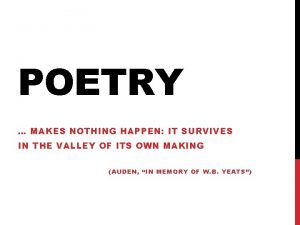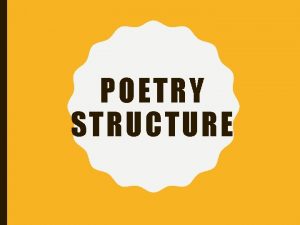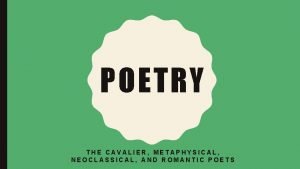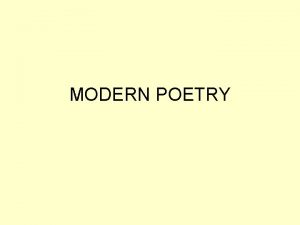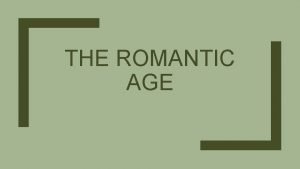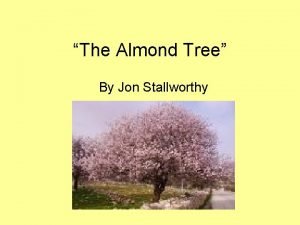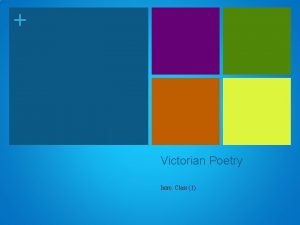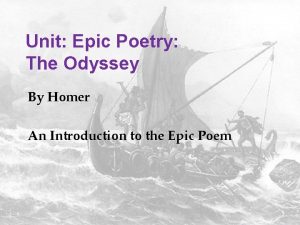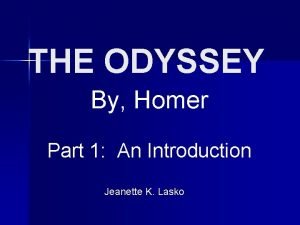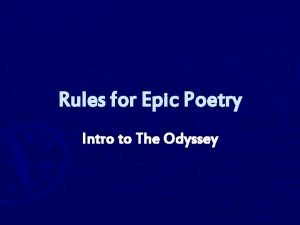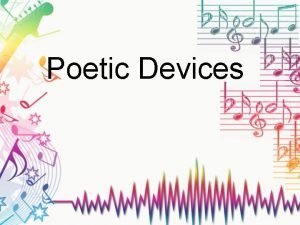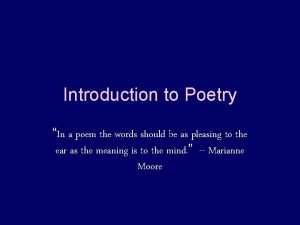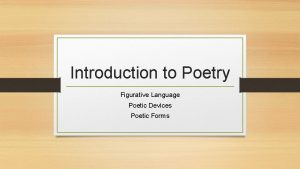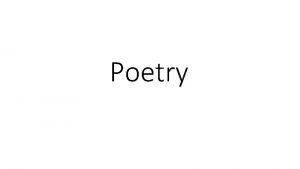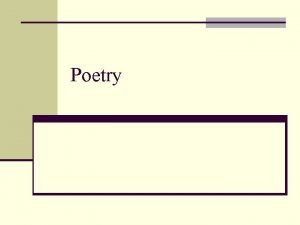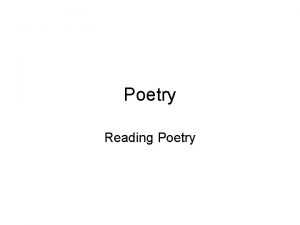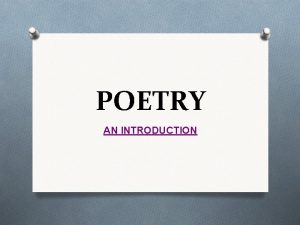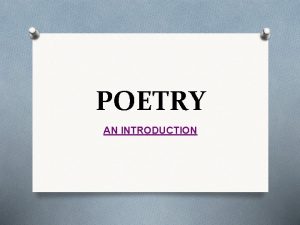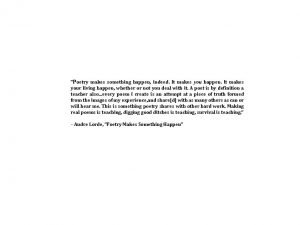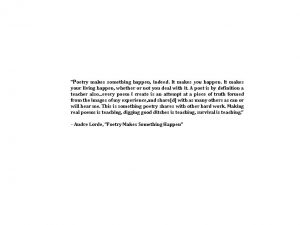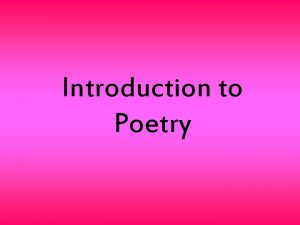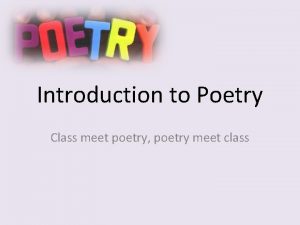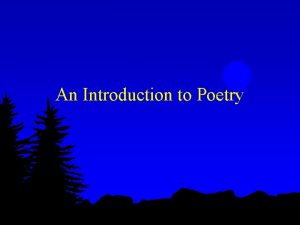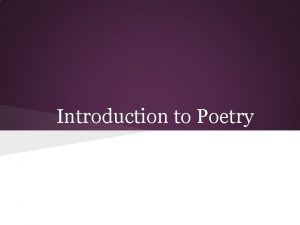INTRODUCTION TO POETRY What is poetry What makes














- Slides: 14

INTRODUCTION TO POETRY

• What is poetry? • What makes poetry different from any prose work? • What is conveyed through poetry?

The 4, 000 -year-old Mesopotamian Sumerian Epic of Gilgamesh is considered the world's first truly great work of literature. It has been discovered in a British Museum storeroom. It is a poem on which the story of Noah and the Flood was probably based.

Scholars have been able to reconstruct the first four lines as follows: He who saw all, who was the foundation of the land, Who knew (everything), was wise in all matters. Gilgamesh, who saw all, who was the foundation of the land, Who knew (everything), was wise in all matters.


Twinkle, Little Star by Jane TAYLOR Twinkle, twinkle, little star, How I wonder what you are! Up above the world so high, Like a diamond in the sky.

OH, THE PLACES YOU’LL GO by Dr. Seuss You have brains in your head. You have feet in your shoes. You can steer yourself any direction you choose You’re on your own. And you know what you know. And YOU are the guy who’ll decide where to go.

William Wordsworth defined poetry as “the spontaneous overflow of powerful feelings: it takes its origin from emotion recollected in tranquillity. ” Wordsworth further explains this effect stating, “the emotion is contemplated till, by a species of reaction, the tranquillity gradually disappears, and an emotion, kindred to that which was before the subject of contemplation, is gradually produced, and does itself actually exist in the mind. ”

Matthew Arnold, a Victorian poet once claimed, “The crown of literature is poetry. ”

To D. H. Lawrence, poetry is, as a rule, either the voice of the far future, exquisite and ethereal, or it is the voice of the past, rich, magnificent. When the Greeks heard the Iliad and the Odyssey, they heard their own past calling in their hearts, as men far inland sometimes hear the sea and fall weak with powerful, wonderful regret, nostalgia; or else their own future rippled its time-beats through their blood. But there is another kind of poetry: the poetry of that which is at hand: the immediate present. In the immediate present there is no perfection, no consummation, nothing finished. The strands are all flying, quivering, intermingling into the web, the waters are shaking the moon.

«Poetry might be defined as a kind of language that says more and says it more intensely than does ordinary language» .

Poetry does not aim to communicate information. If you seek information, you do research. In poetry, however, you find a subtle, sometimes sensual, sometimes playful representation of an experience. Poetry does not aim to give a moral instruction. Do not expect poetry to be always beautiful.

Poetry aims to appeal to «our essential humanity» regardless of its content which can be pleasurable or undesirable. Poetry is a concentrated form of literature, therefore the words are carefully picked and used to give a certain effect.

Poetry has four dimensions: • Intellectual • Sensuous • Emotional • Imaginative
 Mono rhyme
Mono rhyme Tipp-ex sonate
Tipp-ex sonate What makes poetry different than prose?
What makes poetry different than prose? Poetry character cavalier
Poetry character cavalier Experimentation in modern poetry
Experimentation in modern poetry Non narrative poetry examples
Non narrative poetry examples Augustan poetry vs romantic poetry
Augustan poetry vs romantic poetry The almond tree poem
The almond tree poem Victorian poetry introduction
Victorian poetry introduction Epic poem the odyssey
Epic poem the odyssey The odyssey and epic poetry an introduction part 1
The odyssey and epic poetry an introduction part 1 What rules must an epic follow?
What rules must an epic follow? Introduction to poetry billy collins
Introduction to poetry billy collins Implied comparison
Implied comparison Meter figurative language
Meter figurative language

